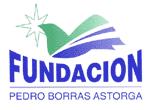The paper focuses upon the problem of identifying the specific and similar in contrastive linguo-cognitive study of phraseological semantic fields — fragments of semantic space of phraseology (set or fixed multi-word nominative expressions). A phraseological semantic field is viewed as a means of manifestation of the corresponding fragment of the phraseological picture of the world built in consciousness. A phraseological semantic field is a semantic unity of phraseological units which is connected with some phenomenon of the real or imagined world and reveals the phraseological consept of this phenomenon.
The paper looks at the two aspects of contrastive linguo-cognitive study of same name phraseological semantic fields of different languages, highlighting their cognitive value: 1) phraseological representation of an individual phraseological semantic group — a component of the phraseological semantic field (i.e. number of phraseological units constituting each phraseological semantic group), which points to degree of the cognitive importance of the corresponding feature of the phraseological concept; 2) configuration of component structure of the phraseological semantic field (i.e. hierarchical order of all the phraseological semantic groups on their specific weight in the phraseological semantic field), which reflects the relative cognitive importance of all the features of the phraseological concept.
Both mentioned characteristics of a phraseological semantic field have numerical expression and in their study statistical methods can be employed. Statistical procedures allow estimating relevance of interlanguage differences in numerical indicators of these characteristics and assessing possibility of interpretation of the latter in terms of cognitive and cultural specificity. Statistical methods use is shown on the example of the statistical check of significance of interlanguage differences in phraseological representation of individual components and in configuration of component structure of the phraseological semantic fields of arguing in the English and Russian languages.










